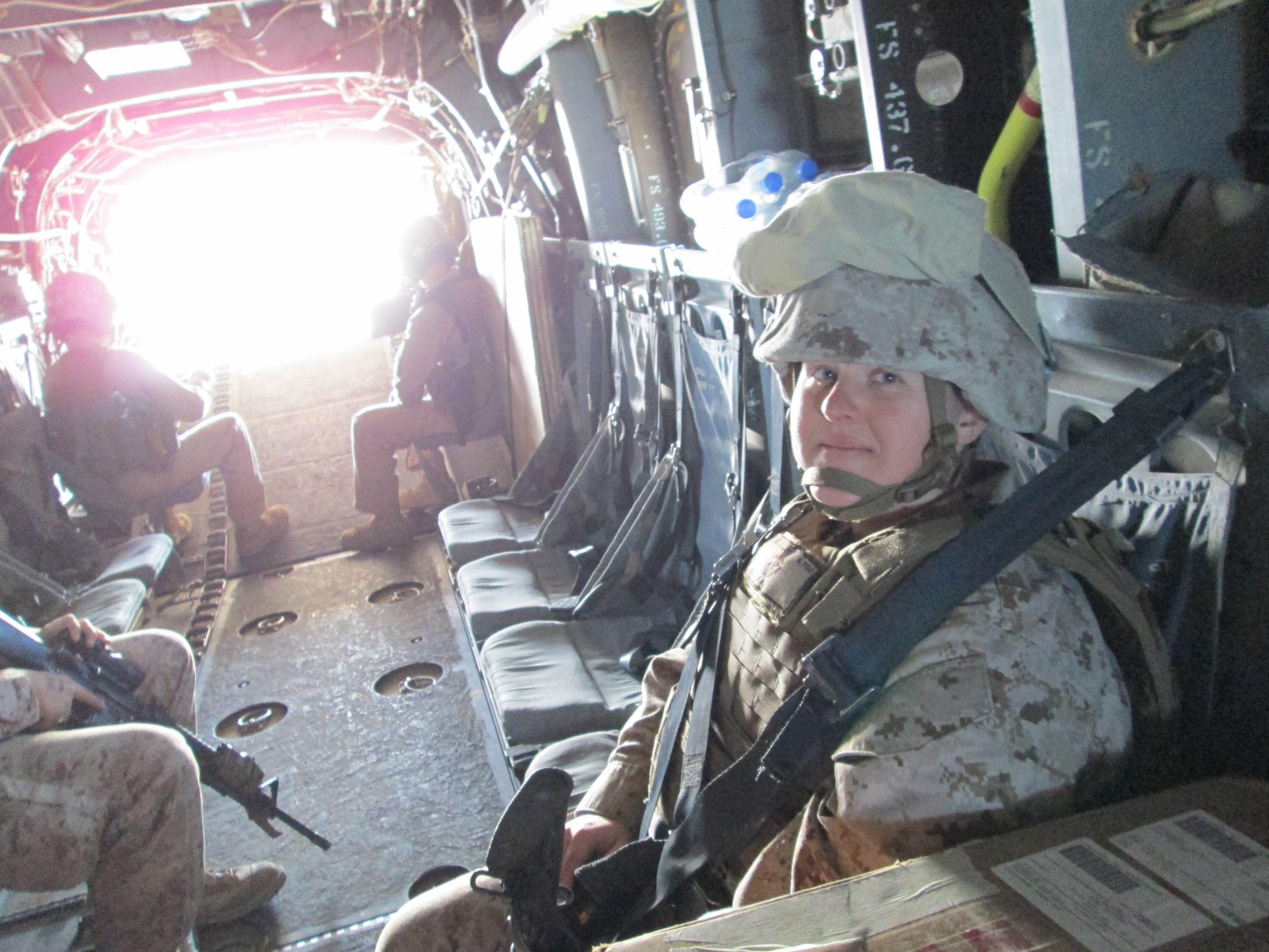Am Nurse, Will Travel

Kathryn "Kit" Barger (CNS, MSN `19) is, by UVA standards, typically atypical.
 With 17 years of active duty service in the Navy, 13 of them as a nurse, she’s spent time honing skills across a smattering of environments, from obstetrics, to intensive care, to emergency medicine.
With 17 years of active duty service in the Navy, 13 of them as a nurse, she’s spent time honing skills across a smattering of environments, from obstetrics, to intensive care, to emergency medicine.
But if Barger’s professional experience has readied her for situations across the spectrum, it’s her broad geographic experience—from military hospitals stateside to field hospitals in war zones—that truly sets her nursing career apart. It’s the same depth and breadth she appreciates in her fellow UVA students, too.
“An on-campus brick-and-mortar program engages you with students from different backgrounds, allowing you to see from their perspectives,” explains Barger, who’s been stationed in locales from Afghanistan to Mongolia. Students hail “from the education world, the business world,” and being around them, she says, helped lead her to “a greater understanding of the range of nurses’ work.”
The fast and furious requirements of a military gig, says Barger, aren’t for the faint of heart. But the rigor required of a Navy nurse set Barger on a fast track as a nurse leader, a role she’s embraced even as she eschews the formalities that come with titles that elevate some over others.
"In the civilian world, nurses often find a focus area where they develop a profound level of expertise. Military nurses, on the other hand, must learn to adjust to changing populations. We're trained to rapidly acquire skills."
Kit Barger, CNS and MSN student, who's had 17 years of active duty service in the Navy, 13 of those as a nurse
“In the civilian world, nurses often find a focus area where they develop a profound level of expertise,” explains Barger. “Military nurses, on the other hand, must learn to adjust to changing populations. We’re trained to rapidly acquire skills. We may take longer to develop specific knowledge, and cultivate specialties, but when it comes to having a wider view of the healthcare system and all the roles we need to be able to occupy, our blinders aren’t tethered quite so tightly.”
No novice herself, Barger calls the depth of expertise she’s found among UVA nursing faculty “an inspiration.”
“You’re blown away by the background and experience of the faculty here,” she says. “Their level of engagement is awe-inspiring. Finding out that your professor leads the professional organization you belong to is great motivation to get more involved yourself.”
If Barger ultimately sees a Doctor of Nursing Practice in her future as she contemplates life after grad school, she’s also tucking into details for deployment to a West Coast Naval base, now that her children are grown, and has no plans to alter her military course just as the scope of her nursing skills has expanded.
Lead she must.
“I’ve already started making plans to engage with professional policy development,” says Barger. “If you’re going to tell people to engage, you need to be the one who does it to lead by example.”

Listen to Kit Barger's award-winning essay, "Caring for Mrs. J"
